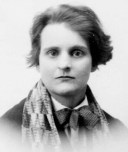I’ve decided to write my paper on Rudyard Kipling. Kipling was born in 1865 and died in 1936. He was born in Bombay during the height of British imperialism. His childhood effected much of his writings. It is said that he and his sister suffered from mental and physical abuse when their parents left them at what Kipling called the “house of desolation”. In that house he discovered his absolute love for reading. He was able to escape the house when he started to attend public school. In 1878 he traveled to America to attend a college that a close family friend ( Cormell Price) was the head master at. Price became a huge influence and role model to Kipling. After college Kipling went back to India to become a journalist. Through hard work and great stories he became a journalist for the Pioneer. In 1888 Kipling decide to go to England and make some fame for himself there. After writing many great publications he again moved to a new home in the states, but not being very welcome in the states forced him and his new family back to England. On a chance to reconnect with the states he took his family to New York and to his dismay he lost his daughter when his family fell ill. Yet because of health issues Kipling was told to stay out of England during the winter. That’s when Africa became a large part of Kipling’s life and where he was introduced to the war efforts. He lost his only son in battle and became even more bitter toward the Americans during the peace summits. Despite Kipling waning health he and his wife continued to travel around the world. His health also became the cause for his reduced publications from the end of World War 1 and his death. Kipling unfortunately died on his wedding anniversary in France after being operated on in the hospital.
Kipling is famous for his work in children’s literature. The Jungle book was then made a movie by Disney and is still widely known among children today. Kipling’s early life and many travels are said to have great influence on his works. My paper’s topic will be on how Kipling made his childhood and travels very influential to his works.

You must be logged in to post a comment.